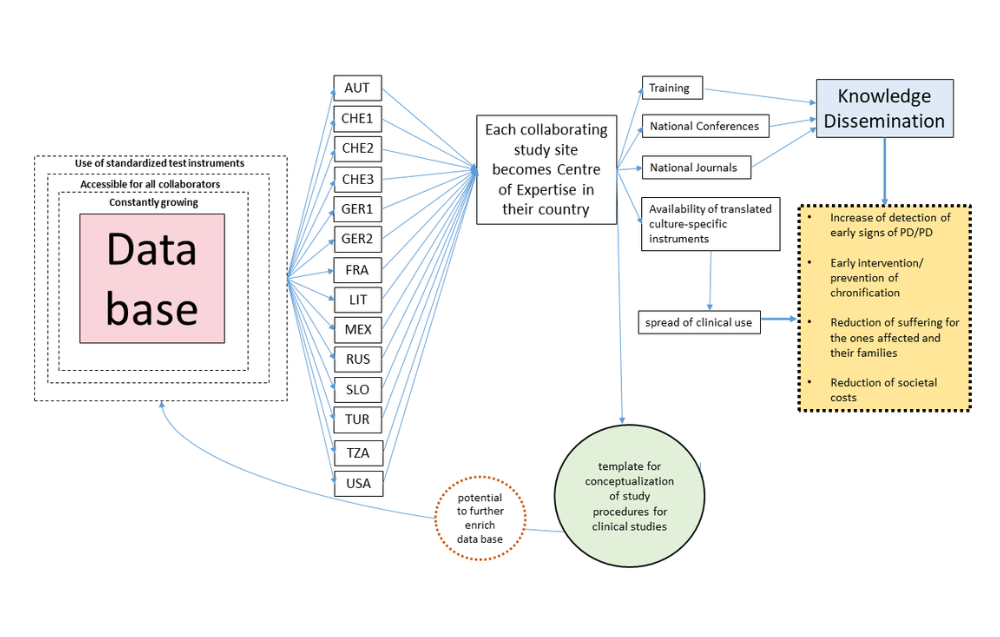EARLY: Investigating Early Signs and Developmental Course of Personality Disorders in Young People
Personality disorders (PDs) are frequent mental illnesses that have devastating effects on both afflicted individuals and society. Until recently, PDs were primarily diagnosed in adulthood, although it is now well established that their onset begins during childhood and adolescence. Since its implementation in January 2022, the World Health Organization’s 11th version of the International Classification of Diseases (ICD-11) is making a radical shift in the diagnostic classification of PD, in terms of personality functioning and age restrictions elimination. This project aims to investigate if this new concept is valid and useful to diagnose and assess personality impairments in children and adolescents, as it is in adults. Through multi-site longitudinal studies, the consortium will develop approaches to investigate early signs and progression of PDs in a comparable way across different cultures, age groups and socio-economic settings.
Personality Disorders (PD) are mental illnesses with a worldwide prevalence rate of 7.8% in the general adult population. Generally, PDs have a negative impact on the individual, their families and society. Although most PDs start in childhood and adolescence, there is a general reluctance to diagnose these disorders before adulthood. There is also very little research on the early signs and developmental course of PD.
Since its implementation in January 2022, the World Health Organization’s 11th version of the International Classification of Diseases (ICD-11) is making a radical shift in the diagnostic classification of PD. Importantly, to evaluate the presence and severity of any PD, a system of four core personality functioning is now applied: identity, self-direction, empathy and intimacy. Additionally, former age restrictions to diagnose mental illness have been eliminated. Under these new guidelines, clinicians are encouraged to diagnose PDs regardless of age and whenever the defined criteria are met.
This project aims to investigate if early signs of PD are already detectable in children, as proposed in the ICD-11, and have a similar impact on diagnosis, prognosis and treatment as in adults. Harmonised standards and diagnostic tests are the main deliverables of this project. In collaboration with several international research hubs worldwide, this consortium aims to provide diagnostic assessment tools for PDs in young people in an equivalent way across cultures, age groups and socio-economic settings.
Banner image above: The consortium aims to develop approaches for the early diagnosis of PDs in young people.

The EARLY project will disseminate knowledge about PD in young people through centres of expertise. Image: EARLY
Additional Information
- The research is part of the BRCCH Principal Investigator Initiative.
- The consortium is led by investigator Dr Marc Birkhölzer.
- Additional team members include Dr Kirstin Goth, Prof Hojka Gregoric Kumperscak, Prof Natalia Zvereva, Prof Sylvia Kaaya, Dr Delia Birle, Prof Rasa Barkauskiene, Dr Moises Kassin, Prof Eva Möhler, Prof Carla Sharp, Prof Diane Purper-Ouakil, Prof Kathrin Sevecke, Dr Lea Sarrar, Dr Sefa Cosgun, Dr Felix Euler, Prof Michael Kaess and Dr Marialuisa Cavelti.

